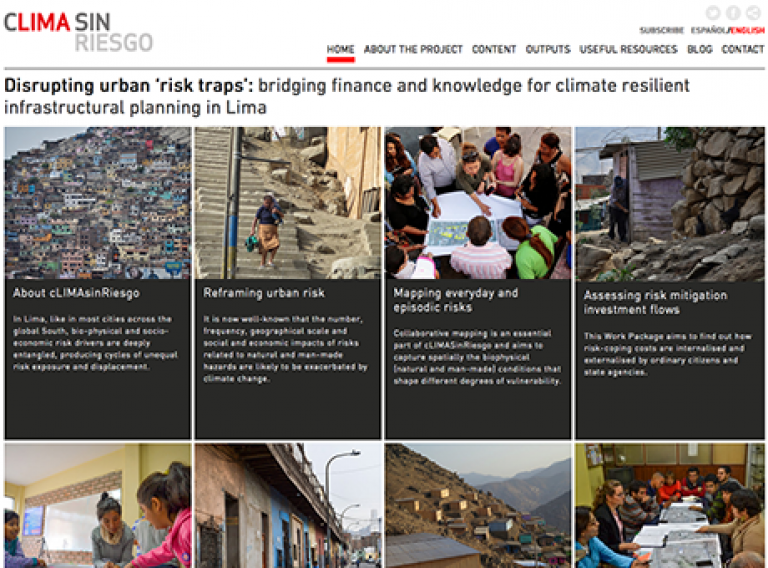cLIMA sin Riesgo project launches digital platform
27 July 2015

One of our latest action-research projects - cLIMAsinRiesgo - has launched a dedicated website www.climasinriesgo.net which will serve as the digital space of dialogue throughout the project lifetime and beyond as it gains a deeper understanding of risk traps in urban Peru.
The project aims to produce robust evidence to inform the design of effective and equitable strategies for the reduction and prevention of urban risk traps. The intention is that these strategies can be considered at multiple scales in Lima and potentially be adapted to the contexts of other cities.
The website is designed to act as a platform not only to share the outputs produced through cLIMAsinRiesgo, but also valuable initiatives in other cities. To foster collaboration and discussion in this digital space we also have a blog attached to the site.
Project Components
The project unfolds through four interrelated work packages which will be implemented with the active participation of various state organisations and community dwellers from the historic centre of Lima (Barrios Altos) and the periphery of the city (José Carlos Mariátegui in the Municipal District of San Juan de Lurigancho). These themes (which are linked to the corresponding sections of the website, for further information) are:
- Reframing urban risk
- Mapping everyday and episodic risk
- Assessing risk mitigation investment flows
- Disrupting risk traps: Strategic action and scenario planning
Partners and Funders
cLIMA sin Riesgo is led by Prof. Adriana Allen in association with Foro Ciudades Para La Vida, the Centro de Investigación, Documentación y Asesoría Poblacional (CIDAP), and Instituto de Desarrollo Urbano (CENCA). It also has support from UN-Habitat along with the Department of Civil, Environmental and Geomatic Engineering (CEGE) and The Bartlett Centre for Advanced Spatial Analysis (CASA) here in UCL.
The project is funded by the Climate and Development Knowledge Network (CDKN), a programme funded by the UK Department for International Development (DFID) and the Netherlands Directorate-General for International Cooperation (DGIS) for the benefit of developing countries.
 Close
Close

